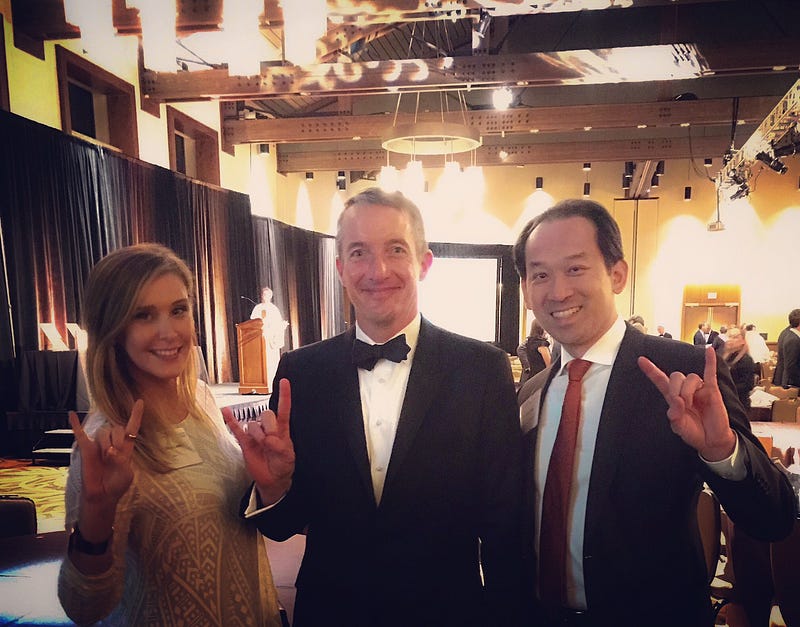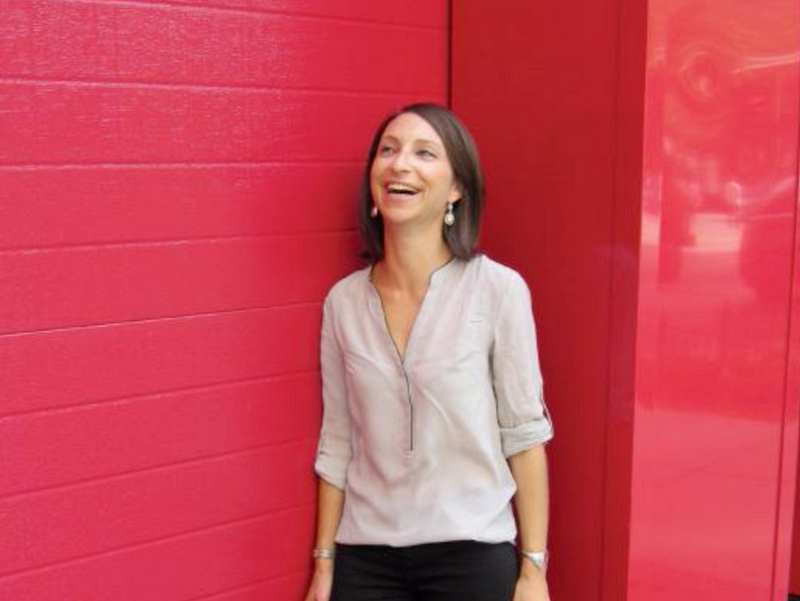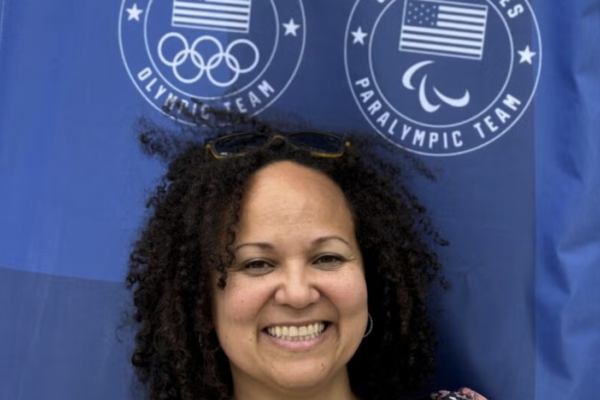Network Builders
Proven strategies to connect and build powerful relationships
By Jeremy M. Simon and Todd Savage

For Andrew Phong Vo, BBA ’95, managing director at Accenture in Houston, networking is second nature. Whenever he meets new people, he makes mental notes about their background and interests. Vo then reflects on opportunities to connect them with others; he takes pleasure in connecting people and organizations. “It’s rewarding to bring people together and, in a sense, serve as a professional matchmaker,” says Vo. As an active alumnus, he’s quick to give back in other ways, too: Not only is he the Accenture executive sponsor to the university, he is also a member of the McCombs Advisory Council, a member of the dean’s new scholarship committee, and the McCombs representative on the Texas Exes council.
Here’s Vo in action: In 2007, he recruited Ashley Loney, BBA ’06, to join Accenture. A decade later, Vo thought she might like the opportunity to get involved with McCombs.
“You can talk about all the interesting things you’re involved in, but that doesn’t necessarily make an impact or impression on people until they can see it for themselves.”
— Andrew Vo
At his invitation, Loney joined him at last year’s McCombs Hall of Fame Dinner where they heard from some of the school’s most distinguished alumni.
“The minute I moved back to Austin 10 months ago, I was certain I wanted to get more involved at UT,” Loney says. “In my 10 years at Accenture, I have stayed connected with McCombs through the recruiting process, but I have always wanted to do more. So, I jumped at the opportunity to attend the Hall of Fame Dinner as a first step.”
That evening, she was able to meet Dean Jay Hartzell, who personally invited her to learn more about the school. “Since then, Ashley has been able to get involved by finding ways to pay it forward,” Vo says. “There’s a sense of cohesiveness and family that comes with the McCombs community. This collaborative environment offers the ability to make those connections.” Thanks to Vo’s efforts, Loney is now in the process of joining the school’s advisory board.

“All of us have the opportunity to serve as a connector to someone else. It’s not always about setting and achieving goals. The more you can empower and bring people together, the more they can elevate their own platform. That, in turn, will promote a culture and environment of giving back.”
— Andrew Vo
So for Vo, making connections is about stewardship. In any quest for networking and reaching out to develop your career or business or give back to your community, there are myriad roles you can play. We turned to other expert connectors — alumni, faculty, and current students — to share some of their best practices and ideas.
The Benefactor
Think about how you can help your contacts. “It’s about adding value to their lives,” says Kiley Baker, MBA ’13, a vice president at J.P. Morgan Private Bank in New York. Baker, who serves on the Wall Street for McCombs Board, learned that lesson from her own mentor at the bank.
“I focus on understanding what’s important to them and being a net giver. It sends the right message — and you become a trusted resource.” — Kiley Baker
The Conversationalist
Social media provides the chance to meet people far beyond your own professional circles. Twitter particularly excels in this area, says Andrew Watts, BBA ’17, who has worked as a consultant at Google, Facebook, and Rooster Teeth.
“Twitter is more effective in connecting with people than email,” Watts says. “On email you have a more formal, forced conversation and people are less likely to reply. Twitter is a place where people are offering their thoughts and ideas and you can easily chime in and start building a relationship. Give good suggestions, add funny or insightful commentary, and they are going to be more likely to engage with you. It’s a really good starting point.”
The Advocate and Friend
While we’ve all heard of paying it forward, Erik Qualman, MBA ’99, carves out a minimum of three minutes per day to, as he says, “post it forward.” He regularly shines a light on others doing work he respects. That can take the form of a “Follow Friday” (#FF) on Twitter or a LinkedIn post about a few favorite thought leaders.
“What counts is doing it genuinely because you like these people,” Qualman adds. He notes that neuroscience shows such posts make the poster, recipient, and even readers happier.

“If someone sees an act of kindness in the offline world, it makes them happier,” he says. “The same holds true in the digital world.” — Erik Qualman
At the same time, Qualman makes sure to devote energy to his current friends and acquaintances. “A mistake people make is that they don’t cultivate the relationships they already have,” he says. He compares it to scuba diving: Sometimes you need to go deep to explore existing connections instead of always looking to meet new people — which, like snorkeling, can be more superficial.
The Volunteer
It may seem counterintuitive when you’re focused on creating your own business, but entrepreneurs can fast-track connections with investors and dealmakers by volunteering or joining a board.
“Entrepreneurs and people coming out of school building their first company may not have many contacts yet,” says Ingrid Vanderveldt, MBA ’96, who, as an entrepreneur-in-residence at Dell Inc., was named a “superconnector” by Fast Company in 2014.
“Now you’re creating an authentic opportunity to have a real conversation with the people you want to build relationships with. You have immediately elevated yourself to a peer-to-peer level and can create a conversation around something you mutually care about.”
The Closer
The best way to use a networking meeting? Be clear on how the person can help you and always ask how you can help them. Nina Godiwalla, BBA ’97, says many people contacted her after she published her bestselling book, Suits: A Woman on Wall Street. In networking meetings, they often struggled to articulate what they wanted.
“Have a clear idea of what you want from the person you reached out to. It’s helpful for you and them — your time with them is short.” — Nina Godiwalla
She was also invited into several invitation-only circles. “At the end of each meeting I had with C-level executives, I noticed that they often closed the meeting the same way, ‘Well, Nina, let me know if there is anything I can do to help you.’” Now she makes it a habit to do the same.
The Mentor
If you’re asked for help, stay focused, advises Rebecca Otis, BBA ’07, a blogger, speaker, and Salesforce senior marketing consultant. “Suggest a quick phone call to learn more about the person reaching out to you and what they’re looking to achieve before meeting in person,” Otis says. “Or, carve out a specific time in your day to respond to LinkedIn requests or personal networking emails.” If you’re not the ideal person to help, think of someone else who may be a better fit. “This will help them expand their network and will prevent a dead end,” she says.

The Host
Next time you attend a conference, consider helping pass out attendees’ name tags. That’s the advice of Professor John Daly, who teaches both at McCombs and UT’s College of Communication. “Always work the reception desk at events. You get to meet everyone ahead of time, get to know their names, and you have somebody to talk to when you actually walk into the reception.”
The Listener
Finding the sweet spot where your passions and talents overlap can help you connect with others who also share them, says Marketing Professor Raj Raghunathan, author of “If You’re So Smart, Why Aren’t You Happy?”
“The networking will happen organically,” he says, because you’ll be able to speak about a topic with a depth you’d never gain from a shallow attempt to simply get their approval. Instead, says Raghunathan, “you’re authentically interested in what they do and you truly have something to contribute to them, as well.”
The Doer
Meet the higher-ups in your organization, says William Cunningham, professor of Marketing and past president of UT. “When I came to Texas, I made a concerted effort to get to know the power structure,” says Cunningham, who began his career at the university as an assistant professor in 1970.
He began eating lunch with the department chairman and got to know Dean George Kozmetsky at faculty parties. It began with a simple introduction from the young Cunningham: “Just, ‘Hello George, I work for you.’” Kozmetsky would visit Cunningham’s office and, when searching for an assistant dean several years later, Kozmetzky eventually offered Cunningham the job.
“Because I got to know George Kozmetsky, all of a sudden avenues opened up for me,” Cunningham says. Yet not having a set strategy can sometimes be the best strategy, says Cunningham. “Different people have approached me at times about what they could do to position themselves to be president of The University of Texas,” he says. “My advice is always the same: Do nothing. They’ll come to you.”
Instead, he advises relying on working hard and building relationships.
“I never really had a strategy in my career other than just to try to do the best I could.” — William Cunningham
The Diplomat
It’s human nature to want to interact with people who are similar to us, but they may simply tell us what we already know, says Sekou Bermiss, assistant professor of Management. To get new information, seek out people who are different from you. But how? “The best way that I’ve seen, and what the research points to, is finding a shared interest,” Bermiss says. Interests like cooking, music, or sports can cross lines and provide a foundation for building new connections. After all, says Bermiss: “What’s the purpose of networking? It’s to get information that you wouldn’t otherwise have.”
Bermiss explains how shared interests like playing pickup basketball at UT’s Gregory Gym can create a more diverse network:
The Neighbor
When a neighbor borrows eggs, you can usually trust they’ll eventually repay the favor. A network should consist of similar trusted relationships, says UT Psychology and Marketing Professor Art Markman, who’s written blog posts for people he later asked to guest lecture in his classes. “A lot of what we’re trying to do when we network is to develop and expand our ‘neighborhood,’” he says. The benefits to both parties play out over time.
“They might do something for you,” says Markman, “because you’ve done something for them in the past, or the expectation is that you will in the future when they need it.” And much like how you’d treat a neighbor, he suggests that people also enjoy simple, random interactions for their own reward and not to achieve a specific outcome. In time, some of those connections could become important.
Markman talks about building a network that acts like a neighborhood:
The Pro
Accept social networking requests from new contacts who are below you in professional experience or title, advises Rajiv Garg, assistant professor of Information, Risk, and Operations Management. Although the person might be a junior employee right now, that can change. Plus, when you need to hire, you can tap your social network for such connections. Those employees tend to show greater loyalty, which can lead to workplace friendships.
“I believe hiring from your social network contributes to overall retention and happiness in the workplace.”
— Rajiv Garg
The Observer
During a networking event, pause between conversations and take notes. “Write down who this person is and relevant points about them, because otherwise three conversations later, you’re going to forget,” says Stacey Rudnick, director of MBA Career Management. When you leave the event and send them a LinkedIn request, mention some specifics from the conversation “so that they have a reason to remember you,” she adds.
The Expert
Speaking on a panel can be a networking goldmine, says Amira Fawcett Malpass, MBA ’17, co-chair of the McCombs Ambassador Committee (MAC). She has invited alumni to campus in her roles with McCombs student organizations. It’s about more than the panel topic. “You’re going to get to know other alumni panelists as well as current students,” she says. For example, a Graduate Women in Business (GWiB) technology panel her group hosted featured leading women in their fields, none of whom had met previously, and was opened by the CMO of Microsoft. Being on a panel promotes easy bonds between speakers. “You have a little family up there,” Fawcett Malpass says.
Fawcett Malpass explains how acting as a panelist can expand your network:
The Trend Spotter
Students have things to teach alumni, too, so connect with them at McCombs events. You’ll find out what’s happening on campus, and you may meet potential interns who can work on a business problem your company is facing. “Alumni also can get the buzz on what the hot companies are right now, because if they’re deeply entrenched in their company, they may not be on the lookout for what’s going on,” says Michelle Hardy, director of MBA Employer and Alumni Engagement. “Students always know what’s popular.”
The Ex-pat
Moving far away requires building a new network from scratch. Tam Le, BBA ’11, who’s lived everywhere from Oklahoma to Istanbul and now resides in Singapore, suggests finding commonalities. “The rarer the thing in common, the more it matters,” Le says. For example, in Texas it wasn’t unusual to find a fellow Longhorn. ‘I could just walk 10 feet and meet someone else with that exact same trait,” she says. That changes the farther you are from home. “In Singapore, I get excited if anyone’s even set foot in Texas and just being an American is enough to form a friendship.”
Before making a big move, use the internet to research new locations, companies, and hiring managers. “In the year before I moved to Singapore, I was a LinkedIn master,” Le says. She sent messages to alums working in her target areas or who attended the university where she studied abroad; people who shared a common connection; and individuals at companies where she formerly worked. “I was leveraging every network I had,” she says.
The Icebreaker
Make the effort to interact with the presenter at an event, says Michaela Lindsay, MBA ’17. “Take the initiative to go up and connect with the speaker, authentically of course, after their talk,” she says.
“Just shaking their hand and saying ‘thank you’ — even if you don’t have a genius comment to make — goes a very long way.” — Michaela Lindsay
It’s then easier later to send a personalized thank you and expression of genuine interest in their work. That can lead to a nice exchange, a connection on LinkedIn, a follow-up conversation, and more, says Lindsay, who landed a role with Worksmith by connecting with CEO Bryan Burkhart following his talk for the Venture Fellows speaker series. Anytime someone makes a connection for you, be sure to circle back and let them know how things worked out, Lindsay advises. “People who go to the effort of introducing others get satisfaction out of that,” she says. “It’s the least you can do to let them know that, regardless of the outcome, you really appreciated that they thought of you and connected you with that person. That goes a long way to closing the loop.”
Lindsay describes how thanking an event’s speaker can be the first step to establishing a new business contact:
Connect with McCombs
There are a variety of ways to connect to fellow alumni, faculty, and current students. Follow both the McCombs Alumni Network on social media (LinkedIn, Twitter, and Facebook) for alumni events. Update your information in the McCombs Alumni Directory so peers and colleagues can find you. Share your good news with the entire McCombs community — whether it’s a new job, promotion, or award — by sending an email to the McCombs Alumni Office. Read about all of the ways alumni can connect with the McCombs community at the McCombs Alumni page.
From the spring 2017 issue of McCombs, the magazine for alumni and friends of the McCombs School of Business.
Originally published at www.today.mccombs.utexas.edu.
About this Post
Share:


